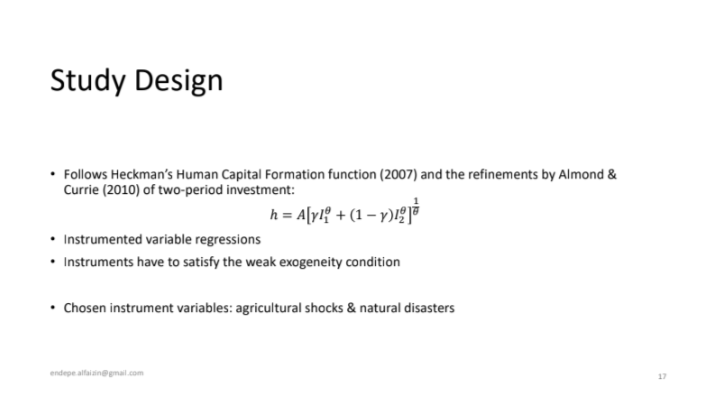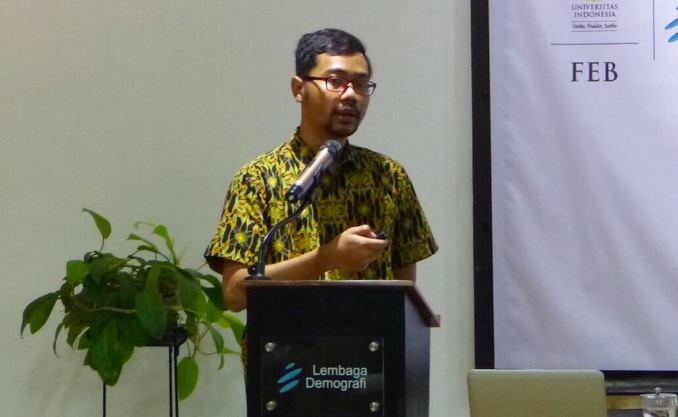Combatting all forms of malnutrition is one of the objectives of the United Nation’s Sustainable Development Goals (SDGs). Member states, including Indonesia, have put in effort to improve nutritional conditions of children in the country, yet Indonesia still has one of the highest stunting prevalence in the world. With that in mind, is there any long-term impacts of stunting on adult life outcomes? This topic was presented by Ruli Endepe Al Faizin (Lembaga Demografi, Faculty of Economics and Business, Universitas Indonesia) in an FKP event hosted by Lembaga Demografi on Thursday, 19 September 2019.
According to the World Health Organization (WHO), stunting is defined as a condition in which a child’s height-for-age z score (HAZ) is greater than 2 standard deviations below WHO’s Child Growth Standards median. Early treatment of stunting is believed to be important because it is difficult to reverse the condition in later in life. Many studies have also found that stunting during childhood may have persistent impacts in adulthood in terms of education, cognitive, health, and economic outcomes.
 Following Heckman’s Human Capital Formation function and the fine-tuning by Almond & Curie, Ruli made use of agricultural shocks & natural disasters within the first 60 months of life as instruments to assess whether they lead to stunting. Through this study, Ruli found that the exposure to early-life shocks lead to 0.3 SD lower HAZ in children. Consequently, this condition is linked to 1 fewer year of education and lower adult income.
Following Heckman’s Human Capital Formation function and the fine-tuning by Almond & Curie, Ruli made use of agricultural shocks & natural disasters within the first 60 months of life as instruments to assess whether they lead to stunting. Through this study, Ruli found that the exposure to early-life shocks lead to 0.3 SD lower HAZ in children. Consequently, this condition is linked to 1 fewer year of education and lower adult income.
As a solution to this problem, Ruli proposed to provide insurance for farmers to smoothen their income in the case of agricultural shocks. He also asserted the importance of accurate and reliable commodity information for farmers. In addition, the government should also take action to mitigate climate change since climate variability may lead to agricultural shocks.
For the complete presentation and Q&A session, please refer to the video and materials provided.





